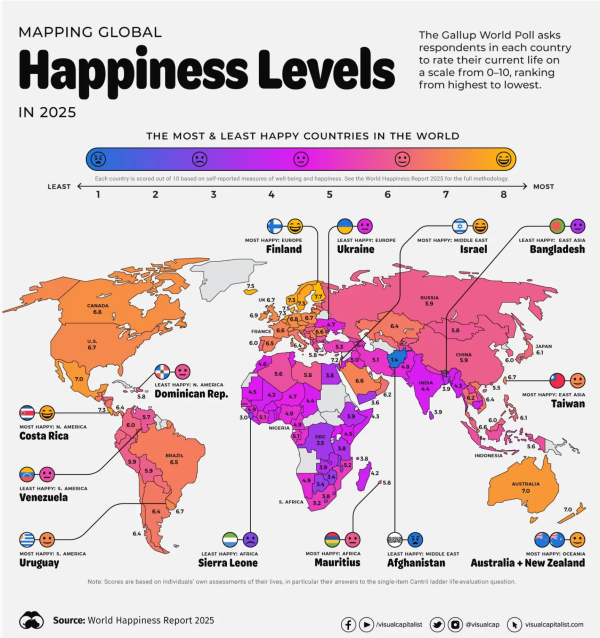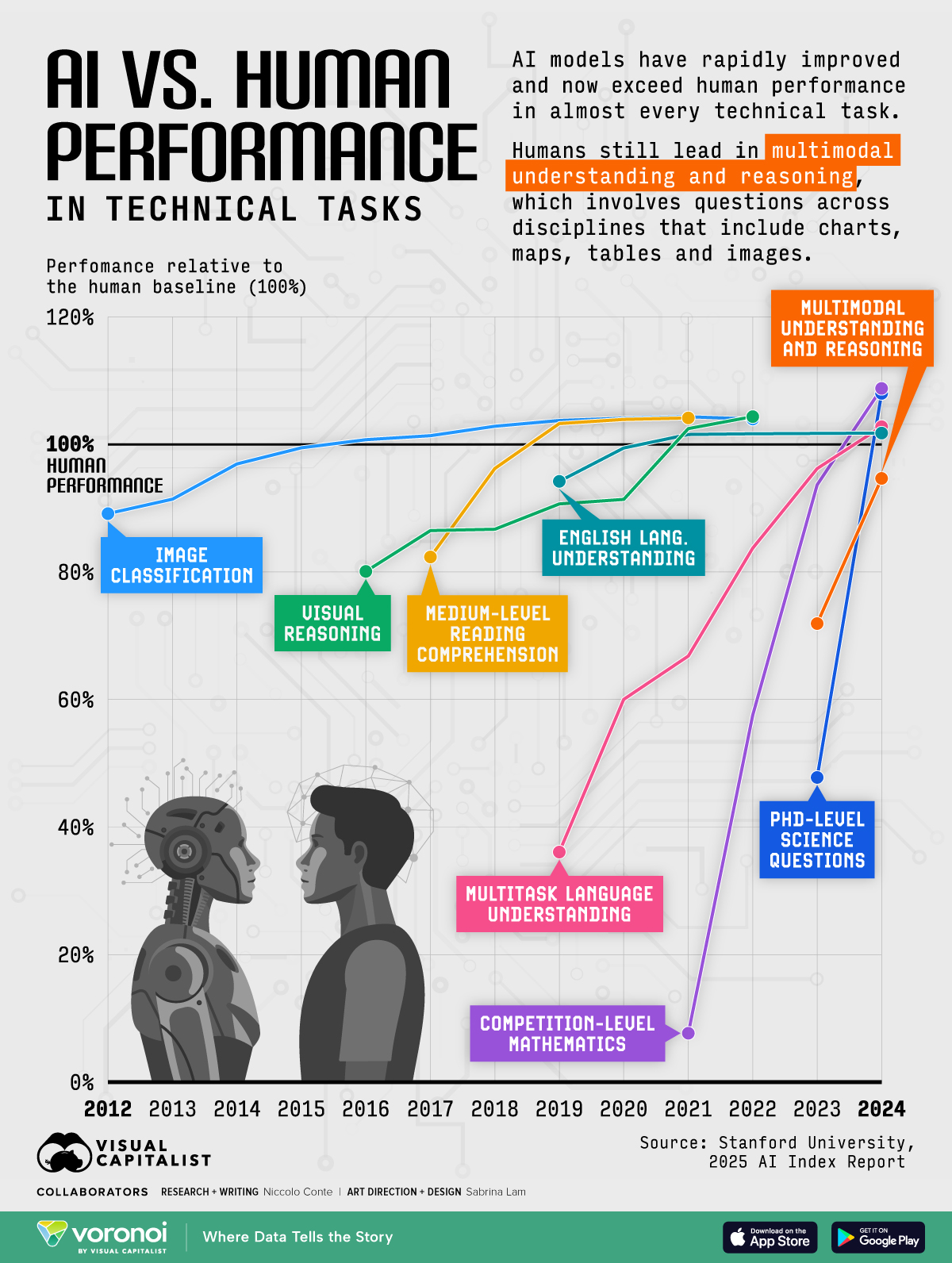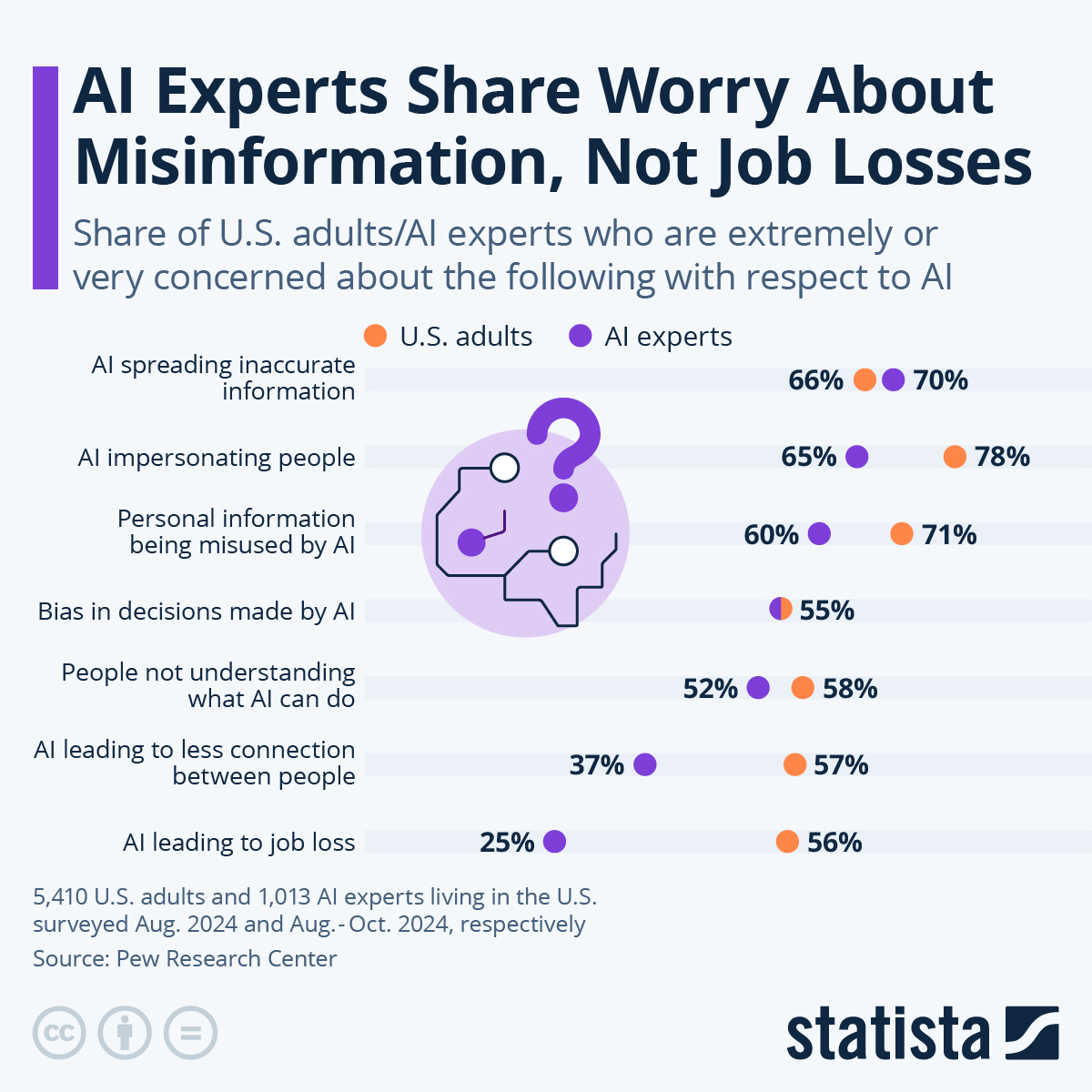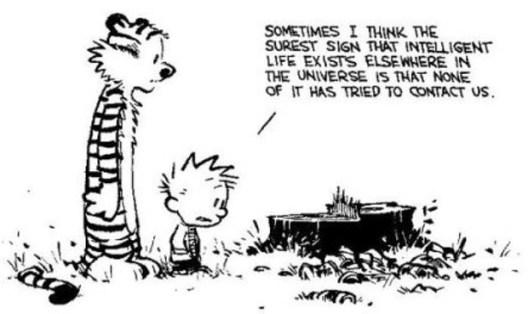Last week, I asked, “What do you do when AI gets better than you?” One of the key takeaways from that post was that AI is freeing you up to be more human.
My son (who helped write it) said he wished we used more examples and stories that dealt with “the future of being human” rather than “the future of work”. So, we decided that would be the “seed” idea for this post.
It’s funny, but when I started to gather my thoughts about it … I felt a rush of emotions.
Emotions and Logic
Emotions have frustratingly little to do with logic. Humans are driven by impulse and often by those that don’t represent our best nature. History shows that we’re driven by fear, greed, scarcity, and self-preservation. And, truthfully, that’s all “human”. But humans are also beautiful, meaning-making machines … and throughout our often messy history, we’ve done amazing things and somehow survived.
Appreciating Life
Watching my father die was a catalyst for me to appreciate life and living more than I did. I gave a TEDx talk about that and wrote articles about the time value of a life worth living. At the end of his life, it was clear that he appreciated things more (a family dinner, a kiss goodbye, the beauty of a sunset) and that he would have done almost anything for more time. Two hidden gifts came from that “scarcity”. The first gift was recognizing that we got to choose how much more “life” we got out of the last part of my dad’s life. The second gift was realizing that you don’t have to wait for the end of life to “live like you only have a year left”.
Final Goodbye
I have another memory from his deathbed as well. He had been out of it for a while, and I was worried that I wouldn’t get a chance to say a final goodbye and to tell him how much I loved him. Luckily, he woke up, and we had a few final lucid moments together. He looked me straight in the eyes, told me how much he loved me, and then with a touch of humor said, “Okay, so tell me how this relates to Veritas …” which was the original name of the company I was running at that time. His final message to me was a reminder that life is not really about work.
Looking Beyond Work
Transparently, I still look at the world through a lens and filter that too often focuses on work. Yet I also recognize and strive to pay attention to the deeper meanings beyond that.
Getting back to the point of the article, it is easy to see how AI relates to work … yet, it might be more important to consider how AI is going to affect the rest of your life.

In the last article, we discussed how Lee Sedol, one of the world’s top Go players, retired after losing to AlphaGo. When asked about it, Lee said, “Losing to AI, in a sense, meant my entire world was collapsing.” He also explained, “I could no longer enjoy the game. So, I retired.”
While it’s certainly his right to retire, I think it might have been the wrong choice … or, at least, not what I would have done in that situation.
If playing Go was his passion, it might have been better for him to change how he “keeps score” to focus on his progress, rather than the distance between him and what AI could do.
As long as you believe you can get better (and have hope for continued improvements), there are many ways to leverage the capabilities and opportunities that come from that.
Many people engage in sports or games even though they know they won’t become the greatest of all time. The same is true for almost any hobby or pursuit (whether it’s in art, literature, philosophy, craftsmanship, or other fields). There will always be someone or something that can do it better, faster, or more efficiently. However, that shouldn’t be the sole determinant of whether you get joy or energy from pursuing a path of getting better at what you want to excel at.
One of my core beliefs is that the changes coming to the world will free us up to be more human. That means we have to choose what to pursue.
What’s more human than pursuing something difficult?
The Beauty of Passion
In a world increasingly shaped by AI’s precision and efficiency, choosing to do something purely out of passion becomes a powerful act of self-expression. When a machine can paint more photorealistically or compose music with perfect mathematical harmony, human creativity finds new purpose not in competing, but in conveying emotion, imperfection, and lived experience.
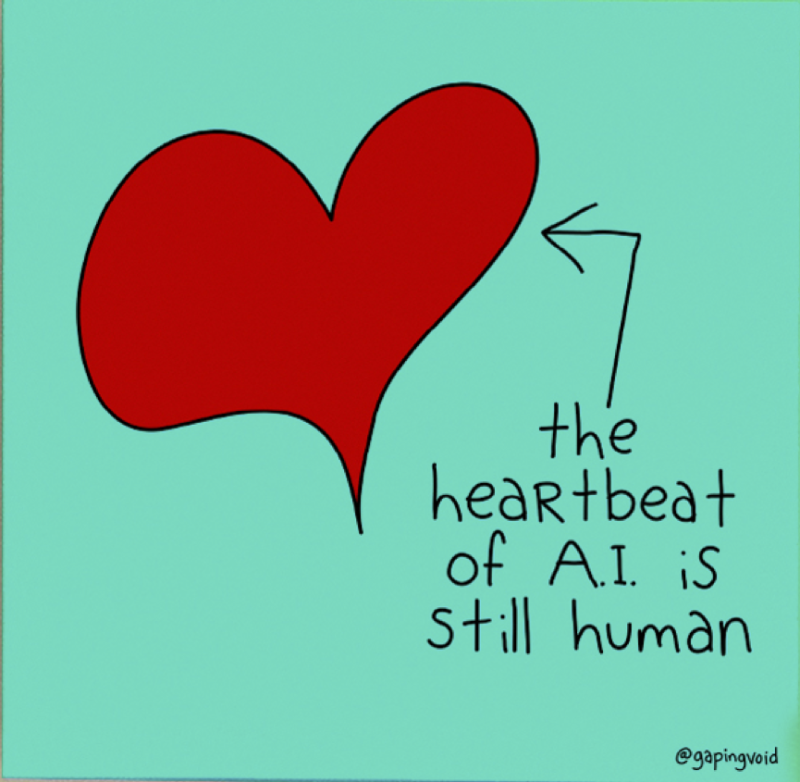
As we focus on growing businesses and changing the world, I think it’s easy to lose sight of the passion that first got us into business.
I do the research and write this newsletter, not because I expect it to make me a ton of money, or because AI can’t do it … but because I enjoy it, and it’s almost like meditation for me.
My son plays rugby despite enduring countless injuries, significant financial cost, and realizing that it takes increasing amounts of his time to stay competitive. From a logical standpoint, it makes almost no sense for him to spend scarce resources or risk such extreme bodily harm in his 30s. But he’s passionate about rugby, enjoys playing it, and recognizes how it improves other parts of his life. It is an excellent example of the time value of a life worth living. He made a conscious choice that this is what it takes to be, do, and have what he values most.
The Power of Fun
Artificial Intelligence is probably better than you at poker … does that mean you shouldn’t have some friends over and try to win their money?
Does it mean you shouldn’t try to learn a new instrument or write a book?
We often undervalue fun because it doesn’t always produce measurable outcomes, but fun is not frivolous. It’s how we bond, relax, and explore parts of ourselves we can’t access through obligation or structure.
We intrinsically understand this. You don’t worry about being the best when you’re playing pick-up basketball or throwing a football with your son. You’re focused on creating memories and having fun.
Joy doesn’t need justification.
Striving To Be The Best
Ultimately, you have to be willing to lose to be the best. In every pursuit, there will always be someone ahead of you. Whether it’s a faster runner, a sharper mind, or a newer technology, I want to be the man in the arena.
It is not the critic who counts; not the man who points out how the strong man stumbles, or where the doer of deeds could have done them better. The credit belongs to the man who is actually in the arena, whose face is marred by dust and sweat and blood; who strives valiantly; who errs, who comes short again and again, because there is no effort without error and shortcoming; but who does actually strive to do the deeds; who knows the great enthusiasms, the great devotions; who spends himself in a worthy cause; who at the best knows in the end the triumph of high achievement, and who at the worst, if he fails, at least fails while daring greatly, so that his place shall never be with those cold and timid souls who neither know victory nor defeat. – Theodore Roosevelt, Citizenship in a Republic
The point has never been to be the best at everything … but to strive for your best.
I’ve always believed the game isn’t over until I win, not because I can’t lose, but because the belief empowers me to get back up again.
Being second best — or tenth, or just a beginner — doesn’t diminish your effort; it validates it. The climb matters, even if you never reach the summit. Humans are wired for persistence and purpose, not perfection.
Humanity got where we are today because people weren’t happy with the status quo. They pursued greatness and innovation. Sometimes, what seems like failure ends up being the most significant success.
AI is an incredible opportunity. It’s an opportunity to increase your productivity, to transform your business, and to redefine industries. It’s also an invitation to redefine your future and how you spend time. You can use it as an excuse to get smaller or bigger … the power is in your perspective.
Hope that helps.
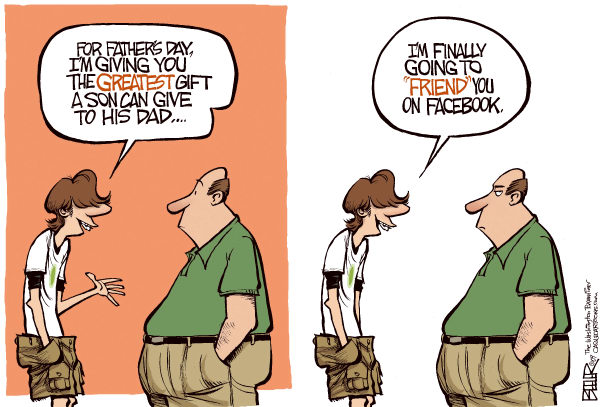
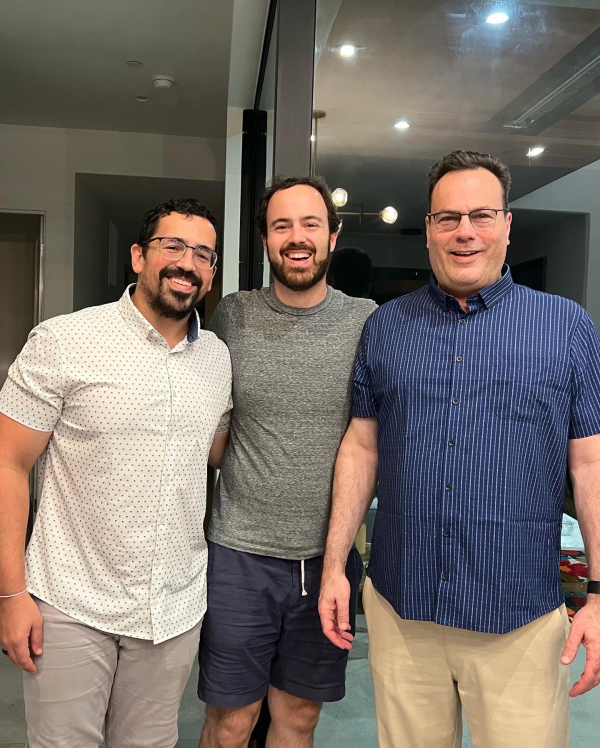

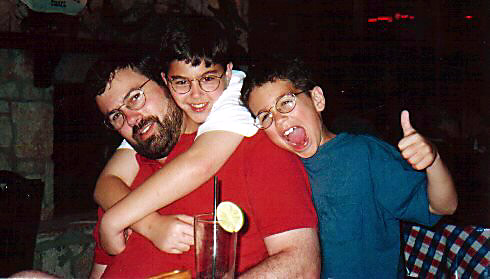
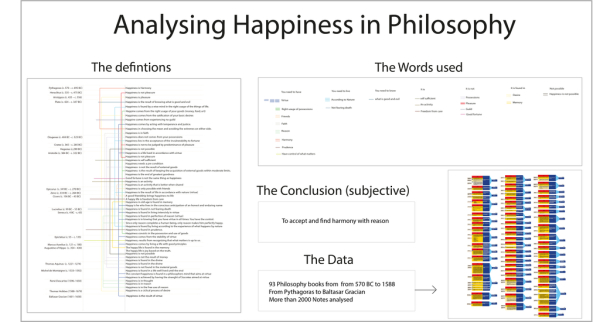
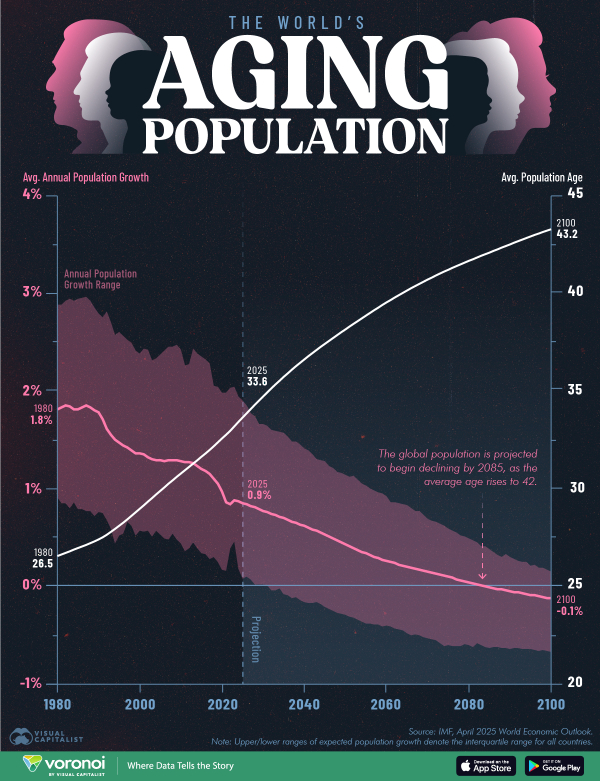 via
via 